Expat Americans: What You Need to Know Before Buying a Home Overseas
By Peggy Creveling, CFA and Chad Creveling, CFA
Nearly every expat who has lived outside their home country for a significant length of time will consider buying a home overseas. This may not be strictly a financial decision. Often, expats are looking to recapture a sense of stability and permanence or to forge a connection with the local community. Sometimes, we’re also hoping to participate in what appears to be a rapidly appreciating property market.
In many cases, owning a home overseas can be a good decision, but it is also one of the biggest financial decisions an expat will make. As such, it is not a choice to be made lightly or without some careful thought. This is particularly important for American expats, who are taxed not only by their country of residence but also by the United States on all their global assets and income. And as the IRS’s attention refocuses on international audits, those tax rules are likely to be increasingly enforced.
Here are some of the basics you need to know before buying a home overseas.
Purchasing a principal residence: If you buy a primary residence overseas, you are entitled to the same U.S. tax benefits as a homeowner in the U.S. If you qualify, you can deduct mortgage interest, property taxes, and certain other items on your U.S. tax forms. You must have income against which to take the deduction, however.
For example, if all your income is excluded by the Foreign Earned Income Exclusion (FEIE) and the Foreign Housing Exclusion, you have no income against which to take the deduction. You must have U.S. source earned income and/or unexcluded foreign-earned income to benefit from the deduction. (By the way, this also applies when making contributions to either a traditional or Roth IRA. You must have unexcluded earned income to make IRA contributions, even if you don’t take a tax deduction. )
Additionally, the 2017 Tax Cuts and Jobs Act (TCJA) lowered the maximum mortgage principal eligible for deductible interest to $750,000 (from $1 million) for new loans. It also nearly increased standard deductions, making it unnecessary for many to itemize deductions.
Selling your home overseas: When you sell your primary residence overseas, you are eligible for the same exclusion on capital gains as you are when you sell your home in the U.S. subject to the following rules:
- As a U.S. citizen owner, you are entitled to exclude the first $250,000 in gains, provided you used the property as your primary residence in two of the five years preceding the sale.
- If both you and your spouse are U.S. citizens or file taxes as married filing jointly (MFJ), you are both entitled to the exemption and can exclude up to $500,000 in capital gains.
- If your spouse is a co-owner but is not a U.S. citizen or green card holder and you are not filing U.S. taxes as MFJ, your spouse’s portion of the capital gain on the house is not subject to U.S. tax. Your exclusion is limited to $250,000.
Note that any exclusion afforded under U.S. tax law does not absolve you from your tax obligations in your country of residence. You could still end up paying tax on the gains in your country of residence while excluding all the gains from U.S. tax. You may also end up in a situation where you are paying taxes on the sale in both your country of residence and the U.S. In this case, you may be able to claim a foreign tax credit and apply it against your U.S. taxes.
Pay attention to currency movements: It is important to note that when calculating the gains on your overseas home for tax purposes, currency movements also matter. When you purchase your home, you must calculate the cost of your property in USD by using the relevant exchange rate on the date of purchase. When you sell your property, you must translate the value to USD using the relevant exchange rate at the time of sale.
For example, if you bought a home in Thailand for 10 million baht when the THB/USD exchange rate was 36.0 THB to the USD, for U.S. tax purposes your cost in the property is USD 277,778. If you sell a year later and the property is still worth THB 10 million, but the THB exchange rate has appreciated to 32.0 to the USD, your property is valued at USD 312,500. You have a gain of USD 34,722 for U.S. tax purposes even though the property did not increase in value in THB. Additionally, you will owe U.S. tax on the gains as you did not meet the “two out of five years” rule.
Due to foreign exchange movements, it is possible to have a loss on the property in the foreign currency but a gain in USD, or a gain on the foreign property and a loss in USD. You could also gain on both the property and the currency and in the worst case take a loss on the property and the currency. Currency movements add an additional layer of volatility and risk to what is often thought of as a “safe,” stable investment.
Foreign mortgage: The currency impact isn’t limited to the effect on the value of the property. Currency movements can also create gains and losses in connection with foreign mortgages used to finance the property.
Suppose you financed the above property with a THB 8 million interest-only loan. At purchase, the mortgage is valued at USD 222,222. At sale, you still must pay off the THB 8 million mortgage. The THB has now appreciated to 32.0, however, which means it will cost you USD 250,000 to pay off the mortgage. In USD terms, you have taken a loss of USD 27,778 on the mortgage. Unfortunately, you cannot deduct the loss against the gain on the property or against any other income. You will have to pay tax on the full USD 34,722 gain.
After the loss on the mortgage and a 15% capital gains tax, your USD 34,722 “gain” has dwindled to a mere USD 1,736. And this is before any taxes owed in your country of residence.
Be particularly careful of the structured foreign currency mortgages marketed in the offshore markets that allow you to choose, and often switch, among a range of “low interest rate” currencies to fund an overseas property. This can seem like a clever idea at the time, but the only clever party in this transaction is the financial institution offering the product. With this product, you have effectively become a currency speculator. The example above showed the impact of a mortgage held in the same currency as the property. With a structured foreign currency mortgage, often your income is in one currency, the property is in a second currency, and the mortgage is in a third, typically low-interest-rate currency. The outcomes can be unpredictable and extreme.
Ownership through a corporate structure: So far, we have been talking about owning property as an individual. In some cases, people choose to own their home in a foreign country through a corporate structure. This could make sense depending on the situation.
A common practice in countries such as Thailand is to own the property through a corporate structure. If a corporate structure owns the property, the corporate tax laws for calculating gains and distributing profits will be entirely different from personal tax laws for both your country of residence and the United States. This may result in higher or lower total tax than owning as an individual depending on your unique set of circumstances.
As an American, ownership in a foreign company requires you to file additional tax disclosure forms. For example, if you own at least 10% of the shares or control 10% or more of the voting rights, you may need to file Form 5471: Information Return of U.S. Person with Respect to Certain Foreign Corporations. Additionally, if the corporate structure is set up solely to hold the property, it could be classified as a passive foreign investment corporation (PFIC), subjecting you to some particularly harsh tax rules.
Anyone considering owning property through a corporate structure should obtain advice from a qualified tax professional familiar with both the laws of the U.S. and your country of residence.
It pays to do your homework: Buying a home is often more than just a financial decision. This is especially the case in a foreign country, where there is a desire to establish a connection to the local community, gain some stability, or participate in a booming real estate market. Whatever the reason, buying property overseas can entail more risk than buying a property back in your home country. It pays to spend some extra time carefully thinking through the details and potential scenarios before committing.
Note: This is article is intended to highlight some key considerations facing expat Americans when purchasing a primary residence overseas. It should not be taken for tax or legal advice. The rules and regulations and how they intersect with the U.S. tax code vary from country to country. Please consult your tax or financial advisor for your specific situation.
This article is a revised and updated version of an article that originally appeared on www.crevelingandcreveling.com.
About Creveling & Creveling Private Wealth Advisory
Creveling & Creveling is a private wealth advisory firm specializing in helping expatriates living in Thailand and throughout Southeast Asia build and preserve their wealth. The firm is a Registered Investment Adviser with the U.S. SEC and is licensed and regulated by the Thai SEC. Through a unique, integrated consulting approach, Creveling & Creveling is dedicated to helping clients cut through the financial intricacies of expat life, make better decisions with their money, and take the steps necessary to provide a more secure future.
Copyright © 2023 Creveling & Creveling Private Wealth Advisory, All rights reserved. The articles and writings are not recommendations or solicitations, and guest articles express the opinion of the author; which may or may not reflect the views of Creveling & Creveling.

